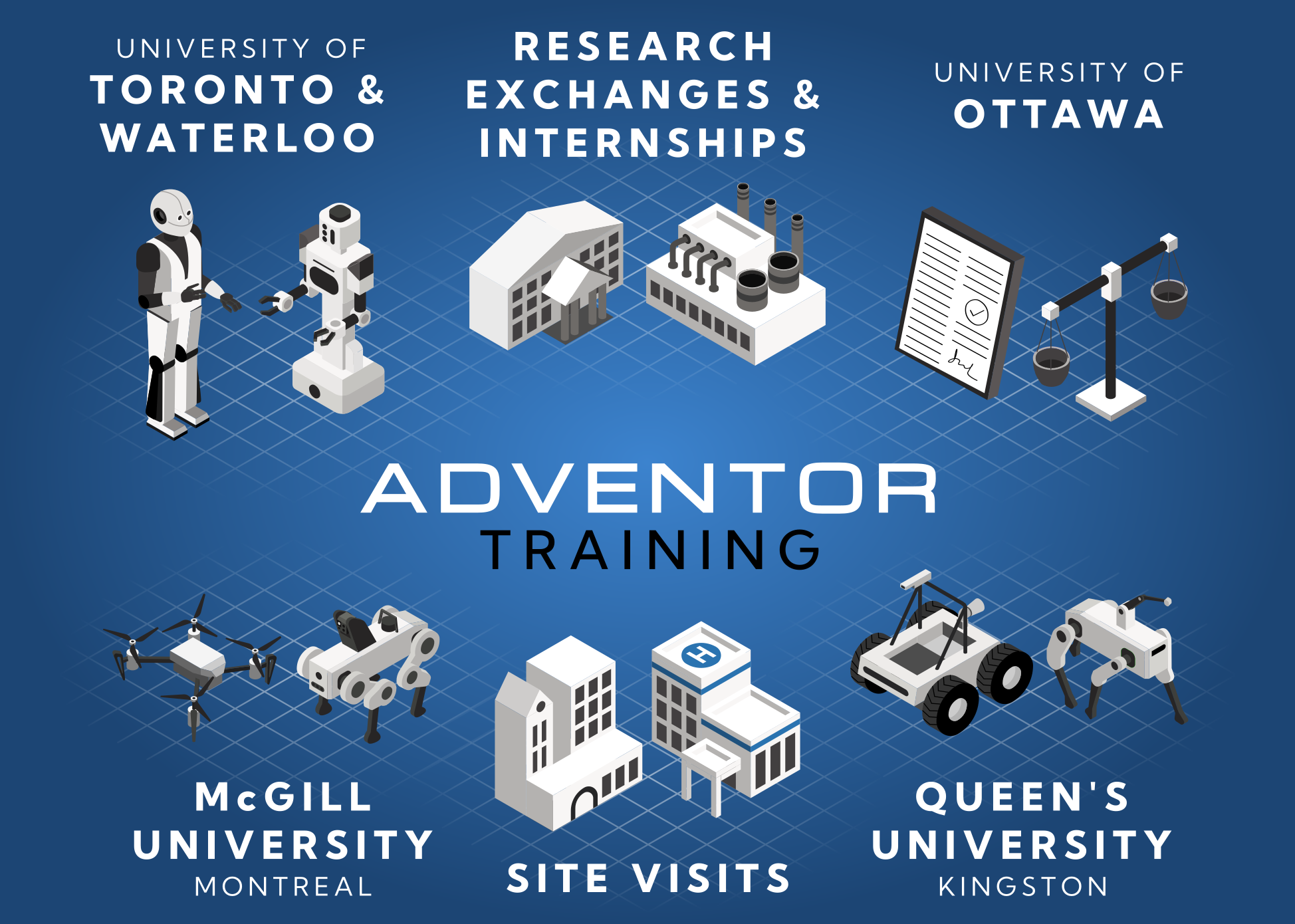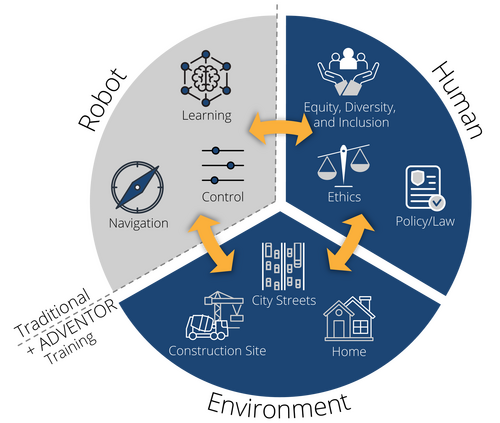

It is time to liberate the robots! The ongoing shortage of qualified workers across nearly every industry, further exacerbated by the pandemic, has led to severe economic impacts and worsening quality of life while stressing existing social inequalities. Robotics offers unprecedented potential to address real labor problems from hospitals to construction sites, in manufacturing facilities, in our homes, and in our city streets. However, robots currently fall short. To obtain the best use from robots, they need to coexist and interact with people, working in proximity to us when needed and navigating diverse areas as necessary. However, the integration of mobile robots (wheeled, legged, aerial) in human spaces also creates new technical, social, and ethical considerations. These interdisciplinary topics, not traditionally covered by existing graduate training programs, are essential for the development of technologies that interact effectively and safely with human life in complex ways.
We acknowledge the support of the Natural Sciences and Engineering Research Council of Canada (NSERC).
Nous remercions le Conseil de recherches en sciences naturelles et en génie du Canada (CRSNG) de son soutien.
Interested in Joining the ADVENTOR Program?
ADVENTOR Trainee Applications are now open!
Program Overview
The primary mission of ADVENTOR: Advanced Engineering and Training in Next-Generation Mobile Robotics for Human Spaces is to prepare trainees to lead the next generation of robotics technologies for solving societal problems.
Advanced Engineering and Training in Next-Generation Mobile Robotics for Human Spaces is to prepare trainees to lead the next generation of robotics technologies for solving societal problems.
This next generation of trainees will bring a unique skill set that is reflective of the interdisciplinary challenges for the practical implementation of mobile robots within human society.
In particular, the ADVENTOR program has been designed to address three essential gaps in current training practices: human-centred designs, experiential learning in real environments, and diversity in technological fields. Trainees will apply their knowledge in collaborative research projects around two themes:
Robots in the City: how robots can assist with municipal public services and monitoring of critical infrastructure.
Robots in the Home: how robots can extend care outside the hospital and enhance activities of daily living.
Human-Centred Robotics – Beyond Disciplinary Specializations
Current graduate programs in robotics have primarily focused on core technical knowledge to develop innovative technology but do not adequately address the economic, social, and ethical issues that arise. To design robots capable of working with humans, the integration of interdisciplinary natural sciences and engineering (NSE) and non-NSE training is essential. This program will provide students with specialized course modules and collaborative research opportunities that allow trainees to consider the various facets of deploying robots in human-occupied spaces. Their integrated skills will better prepare them to consider interdisciplinary approaches to robotics design and deployment, and to anticipate and mitigate potential social and ethical consequences.
Experiential Learning in Real Environments
In addition to the lack of interdisciplinary training, graduates often lack opportunities to apply their technical skills to solve practical problems. Through internships, site visits, and research exchanges with our vast network of collaborators, trainees will be able to learn alongside experts to solve meaningful challenges. For example, industry leaders will mentor trainees on the tools they use to develop appropriate robot solutions that address client needs. These tangible learning experiences will augment the strong foundation set by our new training course.
Diversity in Technological Fields
Lack of representation is prevalent in technological fields and can have severe consequences. For example, the dominance of designs based on “the average male” also marginalizes underrepresented users (e.g., women are 47% more likely to be injured in vehicular accidents). Not only does diversity refer to gender, but also various cultures and (dis)abilities. We seek to improve representation by actively recruiting diverse trainees and providing inclusive training environments. We are also committed to increased representation through the selection of our Program Committee members, collaborators, mentors, and guest speakers.
